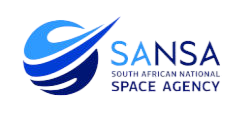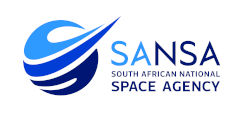
13 Aug What’s trending at SANSA?
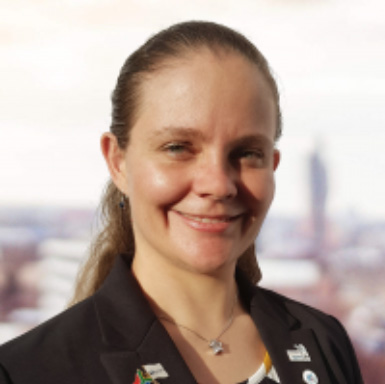
Ani Vermuelen was among five winners of the Space Generation Leadership Award for her unique and insightful firsthand perspectives in space science.
Ani Vermuelen was among five winners of the Space Generation Leadership Award for her unique and insightful firsthand perspectives in space science. Ani Vermuelen, who has just completed a Master’s degree in Space Studies at the University of Cape Town (UCT) SpaceLab, is among the five winners of the Space Generation Leadership Award. The award is a ticket to attend the 18th Space Generation Congress and the 70th International Astronautical Congress in Washington DC, United States.
Vermuelen is a committed student of space science who has participated in space conferences all over the world. She also volunteered as a SANSA scientist/engineer in Antarctica.
“I have learnt so much in working with the amazing SGAC team over the years, so I am very honoured to receive the SGLA. I look forward to making SGC2019 and IAC2019 as incredible and valuable an experience for others as it has been for me.”
AfriGEO moves to Kenya
AfriGEO, the African chapter of the Group on Earth Observations (GEO), is moving from South Africa to Kenya with the help of the Department of Science and Technology. AfriGEO will now be hosted in Nairobi, in Kenya’s Regional Centre for Mapping of Resources for Development (RCMRD) just as they host the 4th AfriGEO Symposium from 13 – 16 August 2019.
AfriGEO is an effort to promote the use of earth observation data in finding solutions for Africa, from climate change mitigation to agricultural and economic development and other policy considerations for the continent. DST will fund the move to Nairobi with plans to source further funding from the member states. Meanwhile, SANSA will facilitate the process by supporting the steering committee responsible for the running of AfriGEO.

SANSA launches first high-altitude balloon for atmospheric radiation forecasting
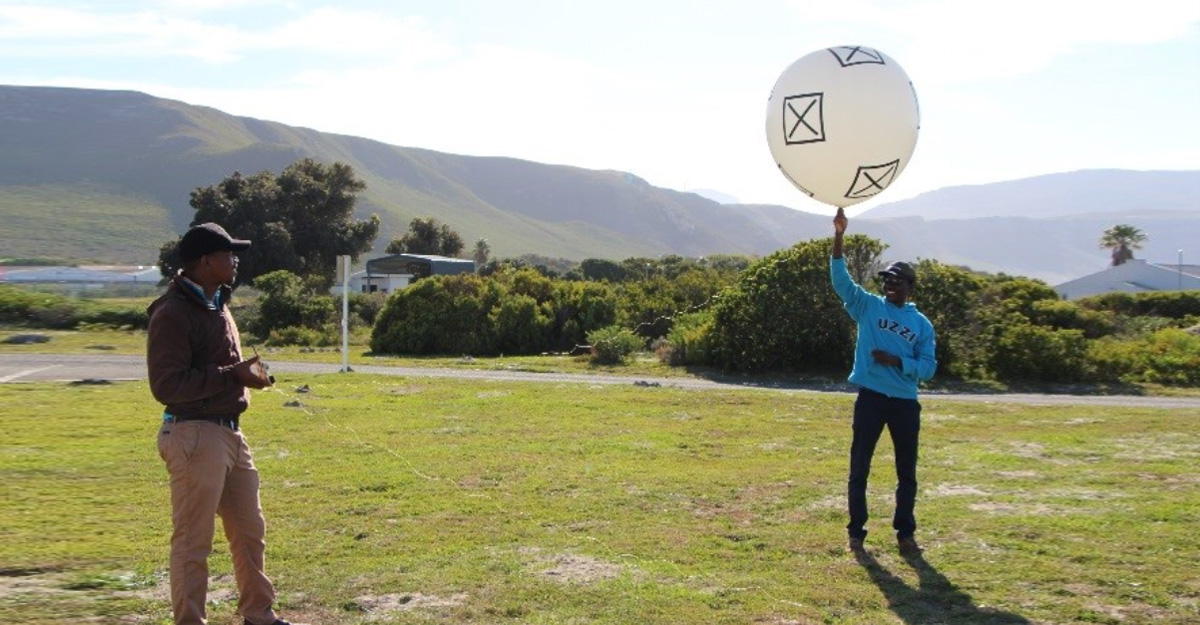 SANSA students in Hermanus successfully launched the first high-altitude balloon as part of an atmospheric radiation forecasting project for general aviation. This comes as SANSA has committed itself to putting South Africa on the world map for international standards of space weather forecasts for the aviation industry.
SANSA students in Hermanus successfully launched the first high-altitude balloon as part of an atmospheric radiation forecasting project for general aviation. This comes as SANSA has committed itself to putting South Africa on the world map for international standards of space weather forecasts for the aviation industry.
The flight was a technical demonstration that carried a radiation dosimeter and some real-time communications equipment. The equipment is able to measure radiation levels at an altitude of 30 km during the least active part of the sun’s cycle as well as during solar storms. This flight marks the first of many launches through which SANSA will gather radiation data at aviation altitudes.
Space for National Development Week 2019
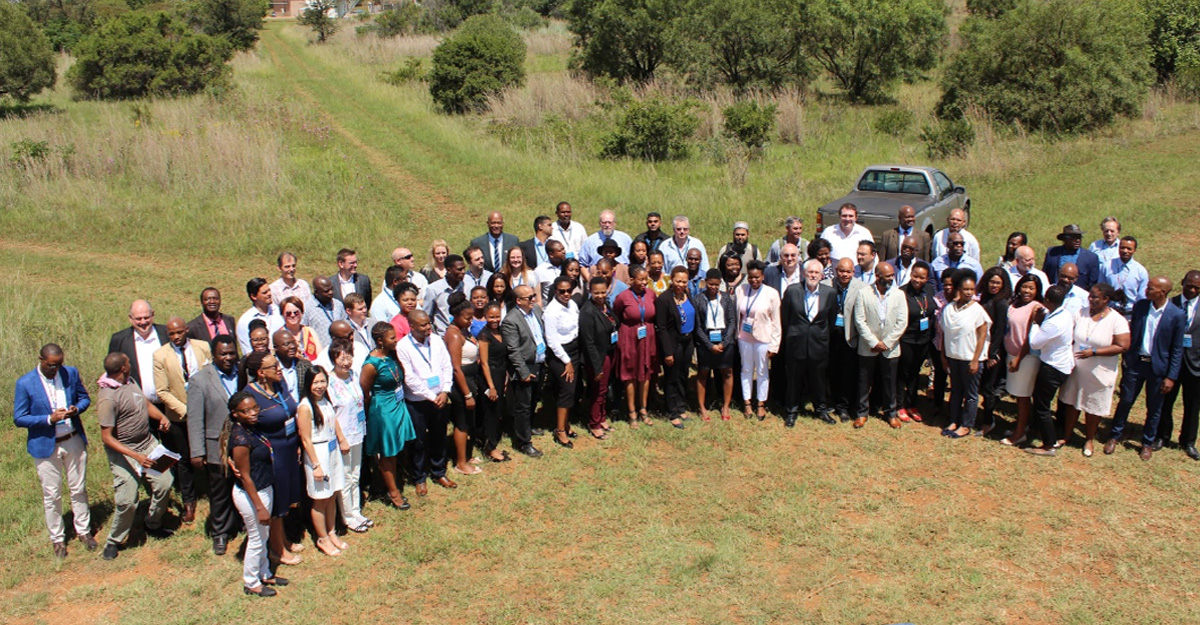 After the resounding success of the inaugural Space for National Development (SND) conference in 2018, SANSA will again host SND week in November 2019 to gauge the state of the space landscape in South Africa. SANSA CEO, Dr Val Munsami is especially excited to learn more about the challenges and opportunities faced by the space sector in the country.
After the resounding success of the inaugural Space for National Development (SND) conference in 2018, SANSA will again host SND week in November 2019 to gauge the state of the space landscape in South Africa. SANSA CEO, Dr Val Munsami is especially excited to learn more about the challenges and opportunities faced by the space sector in the country.
“For us, it is very important to keep the stakeholders briefed, and to learn from them what their requirements and their challenges are,” Munsami says. “We want to understand the challenges that our stakeholders are facing, so that we can start to address them as an agency.”
The theme for this year’s conference will be the future of space in South Africa in the context of the Fourth Industrial Revolution. The new dates for the conference is 12-14 November 2019 in Gauteng.
A Scintillating success for SA science
 SANSA hosted the Scintillating Science workshop in Hermanus from 15-18 July 2019. Billed as “Cutting-edge science achieved through the observations of radio scintillation”, the workshop attracted 37 participants from all over the world who discussed the latest advances in astronomical or radio scintillation.
SANSA hosted the Scintillating Science workshop in Hermanus from 15-18 July 2019. Billed as “Cutting-edge science achieved through the observations of radio scintillation”, the workshop attracted 37 participants from all over the world who discussed the latest advances in astronomical or radio scintillation.
The workshop covered all the domains of radio scintillation including ionospheric, heliospheric, and interstellar, as well as applications of scintillation that improve the science through advancements in observation and modelling.
With such a wide array of scintillation experts, the workshop was a unique platform for attendees to discuss how to efficiently share and access the various types of data between individual groups and across different techniques/domains.
“Attracting this prestigious event to local shores has certainly positioned South Africa as a relevant and desirable destination for events on the annual space research calendar,” says SANSA Chief Scientist Prof Michael Kosch. “The success of the event means that we can only look forward to hosting many more similar events in years to come.”
The Scintillating Science workshop is one example of SANSA participating in international specialist research events, which position SANSA as a global space citizen that attracts world-class international science events.
SANSA soaring high at Budget Vote 2019
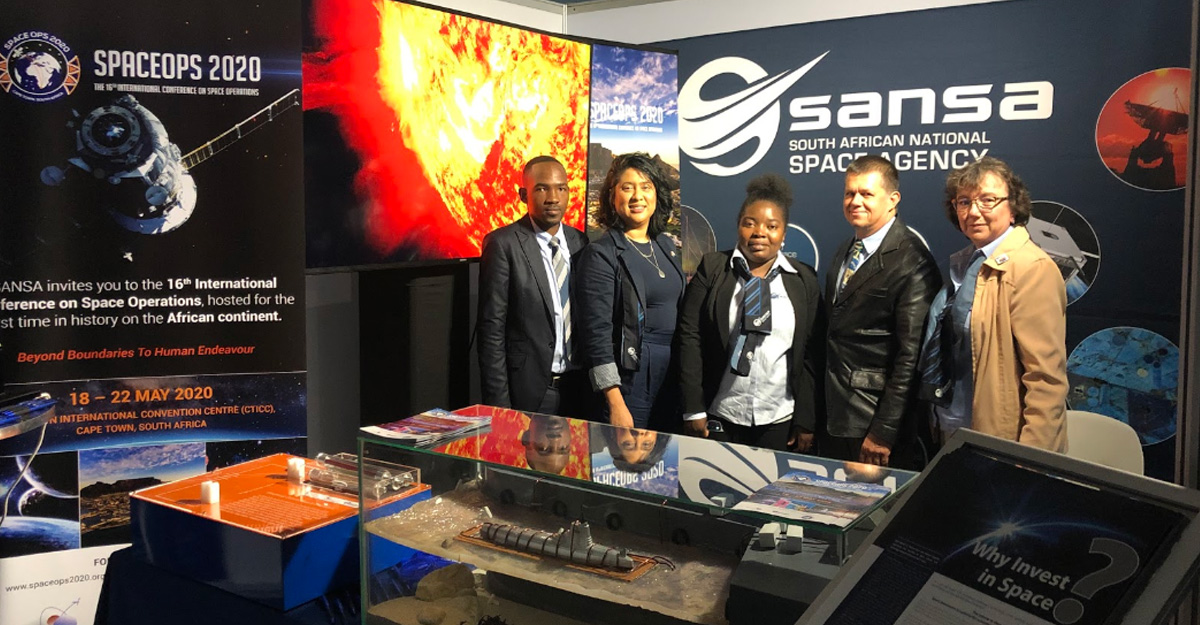 The Department of Higher Education, Science and Technology (DST) hosted a Budget Vote event at the Iziko Museum and SANSA was there to exhibit on 9 July 2019. The Budget Vote is a platform for entities to engage with decision makers at the DST, so SANSA bursary-holder and NWU PhD student, Godfrey Mosotho, took the opportunity to present his research on high-altitude radiation monitoring in South Africa.
The Department of Higher Education, Science and Technology (DST) hosted a Budget Vote event at the Iziko Museum and SANSA was there to exhibit on 9 July 2019. The Budget Vote is a platform for entities to engage with decision makers at the DST, so SANSA bursary-holder and NWU PhD student, Godfrey Mosotho, took the opportunity to present his research on high-altitude radiation monitoring in South Africa.
Minister of Higher Education, Science and Technology, Blade Nzimande was impressed with the low-cost prototype Godfrey had developed, a novel South African innovation that measures the amount of radiation aircraft passengers and cabin crew are exposed to during flights. SANSA also showcased the role of space science, space operations and earth observation applications in our everyday lives.
Minister Nzimande highlighted the successful launch of South Africa’s second CubeSat, ZACube-2, and SANSA’s accreditation by the International Civil Aviation Organization as the Space Weather Regional Warning Centre for Africa. The minister also praised SANSA for its growing role in space weather services for the global aviation sector.
With the science and technology budget for 2019/20 set at R8.2 billion, SANSA has positioned itself to help develop new research and industries in South Africa, and improve the well-being of South Africans through projects for economic development.
